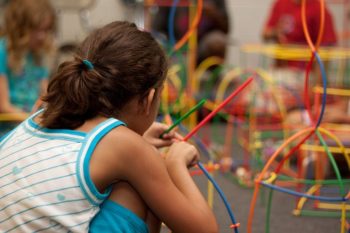Being Your Child’s Advocate for School and for Life
 Being Your Child’s Advocate for School and for Life
Being Your Child’s Advocate for School and for Life
This past academic year was a bumpy one – and that’s putting it mildly! We have encountered so many challenges and obstacles in our family life, in our work world, and in our children’s academic needs. When thinking about all the difficulties that you had to navigate to keep your child’s learning momentum going, I urge you – keep going. Once students return to school in the fall, whether in person, some form of a hybrid program, or heaven forbid a terrible outbreak and distance learning starts again, they will still need you – their parent – to be their advocate. Stand up for what is best for your child, whether by nudging your child gently, or by intervening on their behalf. Here are some ways to continue guiding your children and showing them you care.
Mental Health
Above and beyond all else, please check in with your child and connect with them on a daily basis. Regular interactions in which you can express love and affection to your child in a way that speaks to their heart is the best way to go. A lot of external factors can be swirling around in a teen’s world, but children need you – their parent – a constant source of affirmation. If things are rocky between you and your child, try to find another trusted adult role model who could provide a regular check in for your child. If your child is completely withdrawn and sullen, seek advice from your medical provider, your school counselor, or other professional help.
Physical Health
The old adage “You are what you eat” comes to mind here! Eating healthy, nutritious food gives you a foundation for a healthy body and a clear mind. For middle schoolers who are experiencing puberty, healthy eating helps regulate mood. Steer clear of sugary snacks and drinks, as they lead to inflammation and can cause acne, among a host of many other health problems. Drink plenty of water and get enough sleep at night. Take advantage of cool mornings or longer daylight hours in the evening to make sure you and your teens are getting regular exercise.
Family Life
If there’s a positive aspect to come out of sheltering in place, it is the regular interaction with family members in your household. Thankfully, we are in a post-shelter-in-place environment now, and hopefully, you will continue the good habit of eating and communicating regularly with your children. Even as society transitions into a post-pandemic reality, children still need the stability of regular relationships and positive connections with their family members.
Friendship
I always thought this practice was strange, but when my middle school aged daughter attended get-togethers at a friend’s house pre-pandemic, she would tell me that they would watch movies on their device or be on their phones talking about memes they sent each other over text. During the pandemic, children might not have had any choice but to connect with friends virtually, and maybe even participate in online games. It is my sincere hope that they don’t return to in-person get-togethers – only to revert back to online interactions! Suggest that your children and their friends ride their bikes at the park, visit the beach, or plan outdoor picnics. Gently wean them from reliance on their devices so they can appreciate and nurture true human interaction.
Media and Technology
While we’re on the topic of screen time, cell phones, social media and all things technology for our tweens and teens, please do check out Common Sense Media for their age-appropriate and thoughtful reviews of books, video games, apps, movies, and more that your child may be consuming. As for cell phone use, consider these convincing points presented by Wait Until 8th. To adopt a healthy perspective and relationship with technology, check out recommendations made by the Center for Humane Technology.
Life Long Learning
Acquiring knowledge does not happen at school alone. Now that summer break is upon us, I highly encourage a brain break for your kids! Opt for enriching activities that emphasize critical thinking as applied to life skills. For example, your children might find it enjoyable (and delicious) to research and plan healthy recipes, prepare a budget for grocery shopping, and cook a family meal. Kids who are interested in learning how to invest money might find it captivating to take some online financial literacy classes and participate in mock stock market simulations. Other topics to consider exploring – play an instrument, learn to code, design a webpage, create art using a new medium, start a home business, take up photography, or learn a new language. The possibilities are endless!
These next eight weeks of summer blogs will feature a variety of activities that you can share with your children and family throughout the summer break. Happy play and learning!
Wishing you well,
Jaime
Copyright © 2021 by GenParenting